U.S. Sen. Katie Britt on her rise to the national political stage, seizing opportunities and being a sports mom
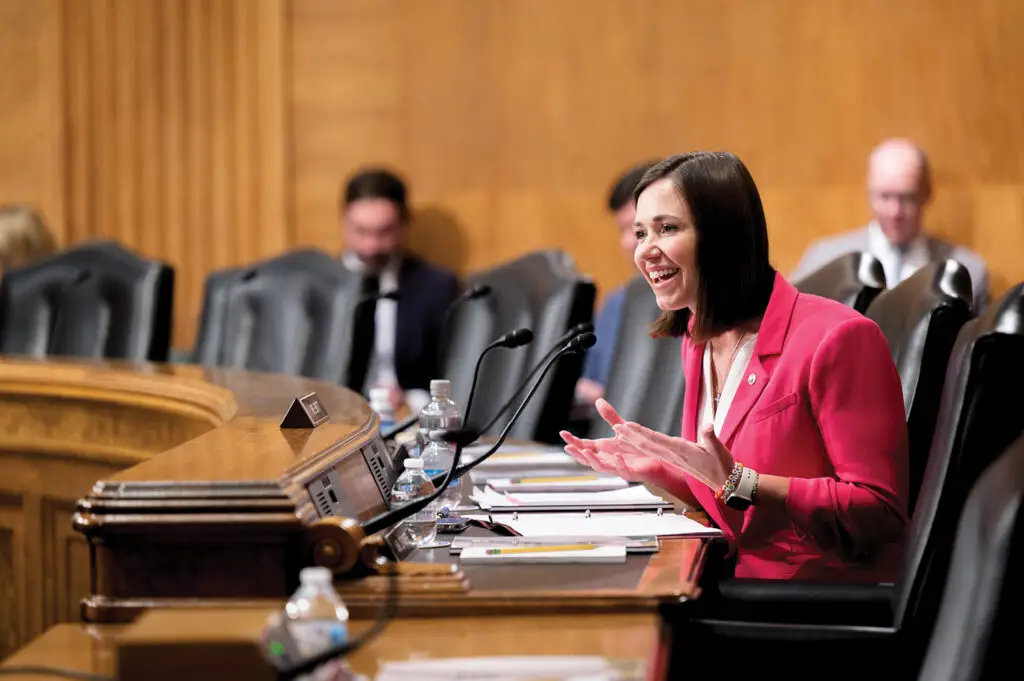
By Allison Law
Katie Britt – native of Enterprise, daughter of small-business owners, wife and mom of school-aged kids – had never run for statewide office before 2022. She had experience in some notable high-profile positions, including president of the powerful Business Council of Alabama, and had worked in Washington as U.S. Sen. Richard Shelby’s chief of staff after he was re-elected in 2016.
But statewide, she was virtually unknown prior to her run for Shelby’s Senate seat upon his retirement.
“Here, you have a public school kid from the Wiregrass,” she says from her D.C. office. “Many people said I was from the wrong side of the state. I wasn’t from a population center. It couldn’t be done. All sorts of things.” She had no political lineage and was challenging a sitting congressman – U.S. Rep. Mo Brooks – for the seat.
Early on, Britt’s polling numbers were a shadow of those for Brooks and the other major Republican candidate for the seat, military veteran Mike Durant. She was undeterred.
“We knew that hard work pays off,” she says. “My advice is, don’t count anyone out.”
Those who meet her are often impressed with her poise, approachable demeanor and her ability to articulate her position on virtually any issue, coming across as confident but not defensive. Watching her interactions with people today, a year after she took office, she seems genuinely interested in the person in front of her, paying close attention to what’s being said. An issue that in her mind needs a closer look is quickly noted by an aide and followed up on.
Longtime Alabama political observer Steve Flowers wrote a glowing column about her at the end of December. “She conducts herself with old-school southern grace, integrity, and class, which has resulted in her being respected and liked by colleagues and constituents on both sides of the aisle,” Flowers wrote.
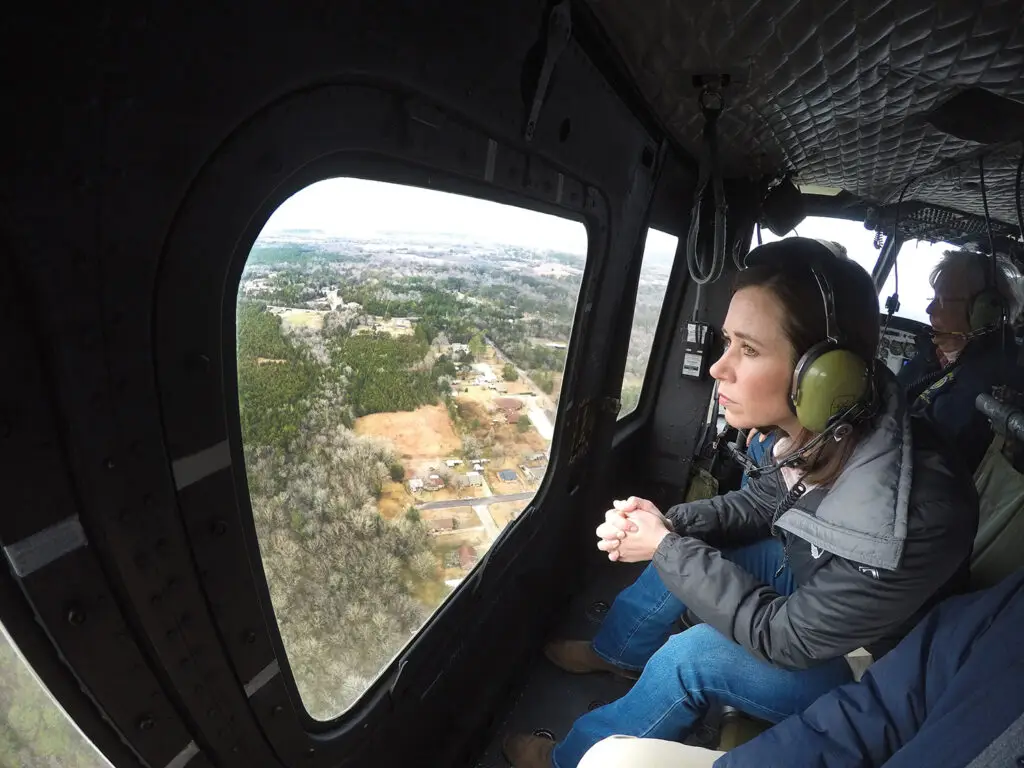
Some help from rural voters
Britt is quick to note that much of her success in her campaign and eventual election was thanks to rural voters. She says that during the campaign, she relished the chance to sit down with these rural folks to listen and learn from them.
“Having the opportunity to hear where they felt like the nation was going, and what they felt like needed to be different, and issues in front of us and opportunities in front of us was a critical part of continuing to shape how I do this job every day,” she says.
“I want to encourage them to continue to get involved.”
Growing up in the Wiregrass region, the community she was raised in was (and still is) focused on small businesses, agriculture and the military (the home of Army aviation, Fort Novosel – formerly Fort Rucker – is just east of Enterprise).
“To me, that’s the very best of America,” she says. “Both of my parents were small-business owners, so that shaped the way that I think about many of the things that come before me. I understand that the best thing the government can do in almost every single situation is just get out of the way!”
Her view of military readiness was influenced by the servicemen and women at Fort Rucker, whose children she went to school with.
“You realize really early on that sacrifice is not just theirs, but their entire family,” she says. “We owe their family a tremendous debt of gratitude. That’s why I am a strong supporter of our national defense.”
As for agriculture, growing up surrounded by peanut fields and with those who worked from sunup to sundown gave her an appreciation for the diligence and dedication of farmers and ranchers.
“You realize these people give so much to make sure we can put food on the table.”
Preparation for success
Her educational background, a setup for success in law and business, is fairly well-known: In high school, she was selected for Girls’ State and was elected governor and was named a valedictorian. In college at the University of Alabama, she worked as an intern in Shelby’s office and was elected as student government president at Alabama, one of very few women to win that title.
She worked as deputy press secretary, press secretary and eventually chief of staff for Shelby. A graduate of the law school at Alabama, she also worked as an attorney for Butler Snow LLP and special assistant to the UA president. She was president of the BCA from January 2019 until June 2021, when she resigned to run for the Senate.
“One of my greatest prides at BCA has been bringing the previously forgotten back into the fold – our small businesses on Main Street, and the rural businesses and industry that are the heart beats of local communities in every corner of our great state,” Britt said in the news release announcing her resignation.
She hit the campaign trail hard, driving from one corner of the state to another to talk with voters and put her name out there. She knew she would find support, especially in rural areas and small towns.
“These are my people, this is where I’m from,” she says. “You made a huge difference in this race and can make a huge difference in races to come. So use your voice – we need you.”
The values she says she was raised with resonate well with her constituents: Faith, family and freedom; the expectation that you’ll work hard; to treat others the way you want to be treated; and a sense of community, specifically in how neighbors, teachers, extended families and others provide a foundation for children to be mentored and to become successful adults.
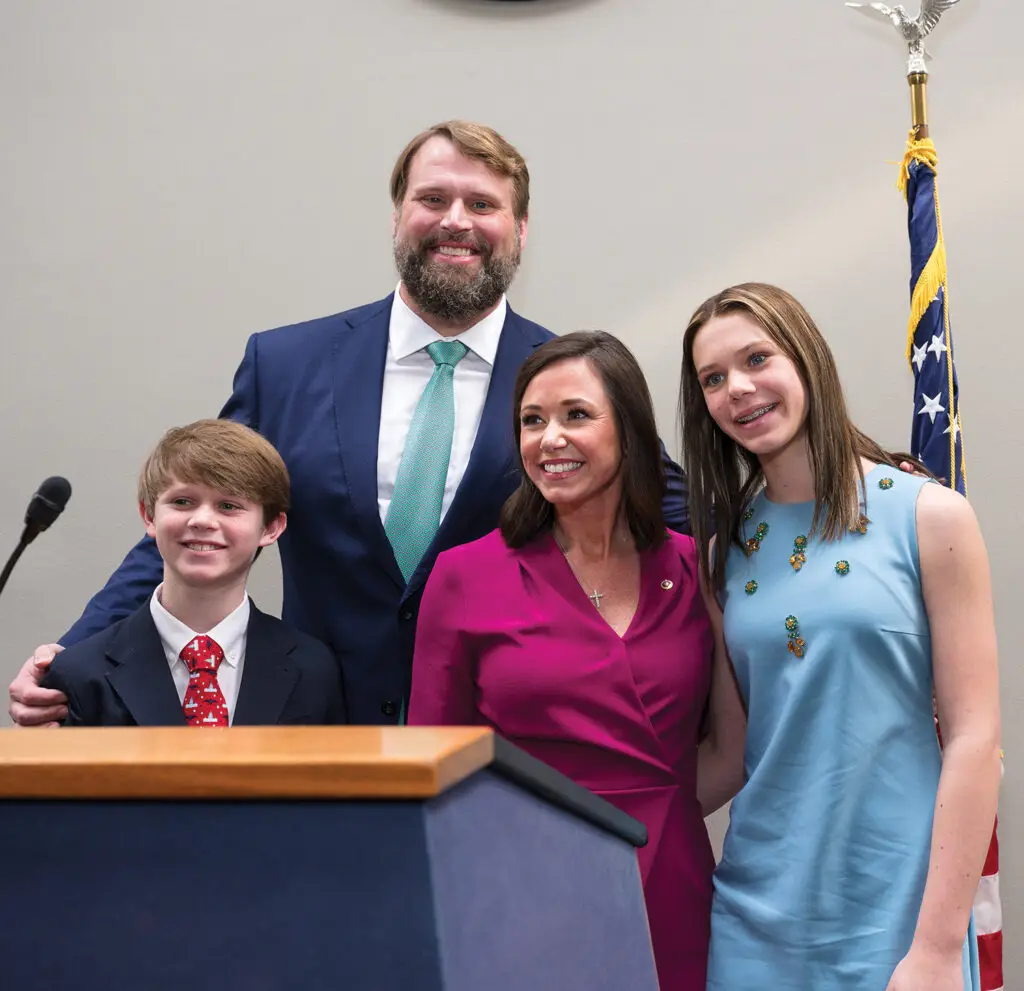
Family time
At 41, her gender and youthfulness is for many a welcome contrast to the older, generally male makeup of Congress; she’s quick to point out that she is the only Republican mom of school-aged children in the Senate. She was well aware that serving in the Senate would completely change her family’s schedule, with a job that requires a great deal of travel and often several days each week of work in D.C.
But she says her husband, Wesley Britt, former All-American offensive tackle at Alabama who went on to play for the New England Patriots, is the rock that allows her to pursue this part of their journey.
The Britts are often at games of their children, ninth-grade daughter Bennett and son Ridgeway, who is in the eighth grade. “Being a wife and mother is the most important thing,” she says. “It is critically important that each and every moment I can get with my children, that I seize that.”
Her children have visited her several times in D.C., and as a family they don’t shy away from political topics. For example, when she traveled to the site of the Hamas attacks in Israel to see the devastation of the events since Oct. 7 first-hand, she talked to her kids about the situation, sparing them the more gruesome evidence she witnessed.
They’re engaged, she says, and want to know what’s going on in the world. Both children have spent time in Washington with her; Bennett told her, “I didn’t realize all that you do.”
When she has to spend time away from the children, her focus is on the next generation: How can we make things better for them?
“Whether it’s volunteering or in the classroom, it’s important that we step up and fight for the next generation,” she says.
It’s that next generation, she says, that inspired her to write a book.
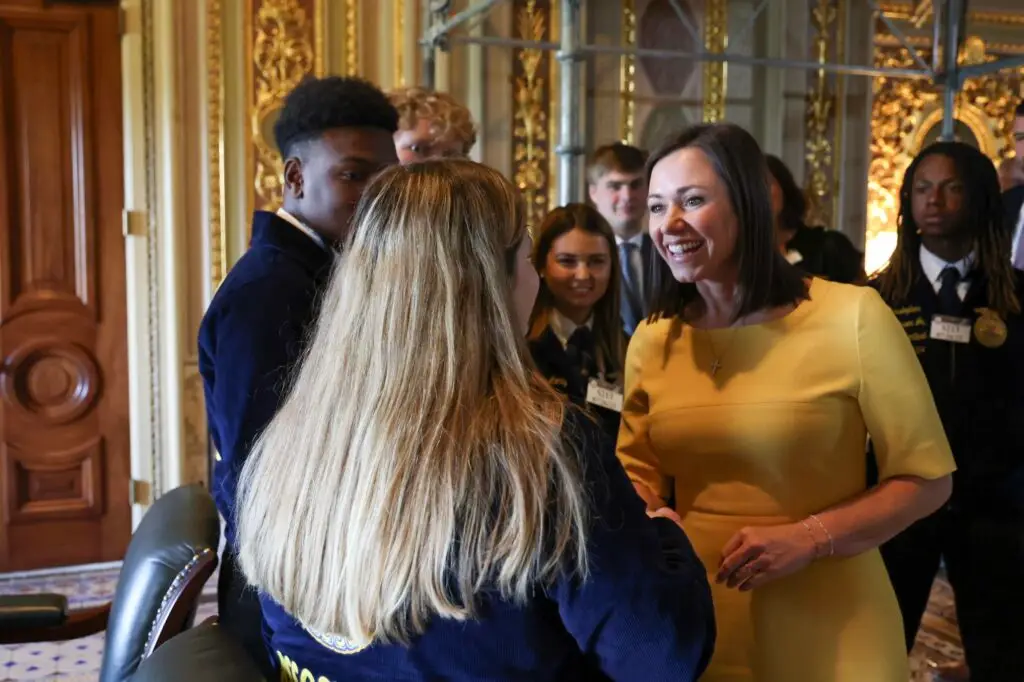
‘Ability to achieve’
She’s done a lot of speaking to young people and school groups, and has honed her message to emphasize that it’s the things she did wrong, and the times she’d failed, that have inspired her to be better and to do better.
“I think too often we see someone’s peaks in life,” she says. “I think it’s really your valleys, if you’re honest, number one, about how you got there. That’s something I try to talk to young people about – don’t blame everyone around you.”
She was approached after the runoff in 2022 about writing a book focused on her campaign; her response was “absolutely not!” After she won the Senate election, publishers sought her out again, and again she declined.
In early 2023, not long after taking office, she spoke at an assembly to middle schoolers at Dunbar Magnet School in Mobile, and felt inspired by the children’s questions, their energy and their excitement about the future.
“It was the first time it hit me, these kids are all in this gym to hear from me. Kind of taking that and seeing that, that’s why I ran. I wanted the unseen to be seen. I wanted to fight for a state where no child’s zip code determines their opportunity. Where people can work hard and achieve the American dream.”
Britt felt that this particular speech was the most well-received she’d ever had. She made the kids promise that when the world knocks them down, that they will stand back up. “They were on their feet, saying, ‘we will stand back up!’ Oh my goodness!”
Again, publishers came calling, this time with a different approach: Don’t write about the campaign, but instead about life lessons for the next generation, and inspiring them to do hard things. She agreed.
The book, “God Calls Us to Do Hard Things,” tells her story about getting into the Senate race, about prayer and asking for God’s guidance, how her children played a role in her career path, about her failures, about her husband and his NFL career and the lessons he learned. “Just things I did wrong and things I wished I’d done differently.” It also serves as a call for young people to surround themselves with good mentors, and to in turn mentor others.
She says the response to the book has been positive, among young people as well as those who’ve lived a full life. “People have been surprised at the vulnerability I showed.”
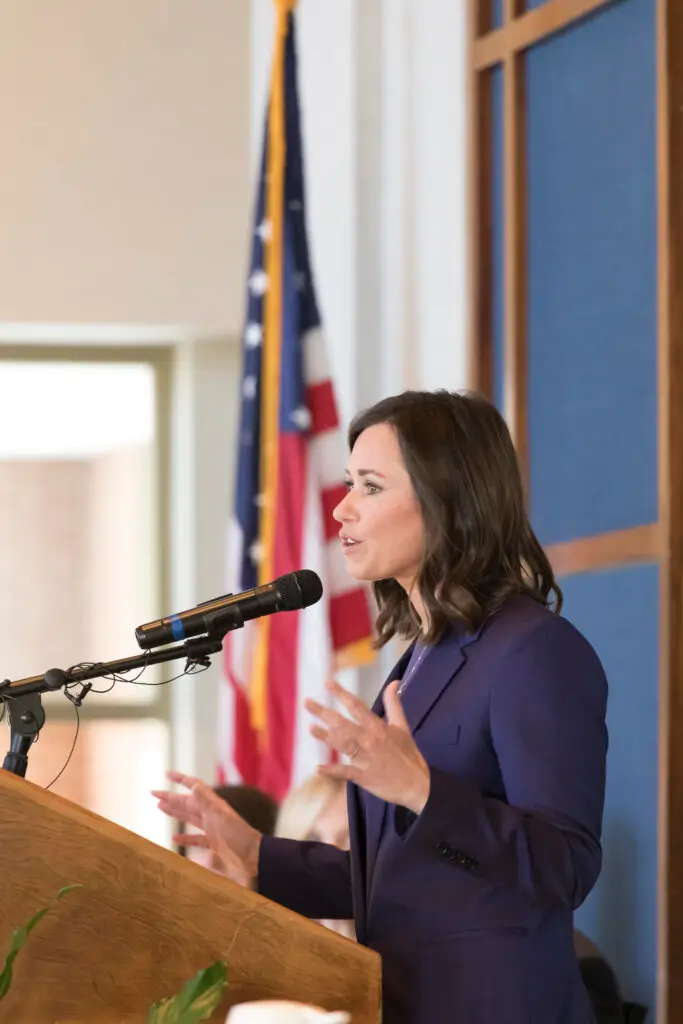
Moving forward
As she was preparing to head back to Washington after the holiday break, there were many issues to be dealt with, including border crossing policies, funding for Ukraine and the lack of major legislation in the Senate that defined 2023.
“Certainly one of the things we’ve been trying to do is get the Senate back working,” she says. “I think that’s what the American people deserve. So I am doing the work to figure out how we can actually make it work, because when it doesn’t work the people who pay the price are the American people, and I will not stand for that.”
But she’s also keenly aware of the issues that are important to rural Alabamians, including infrastructure. She says she understands the importance of major thoroughfares across Alabama.
“That’s how we ultimately move goods and people not just around Alabama, but across the country and ultimately across the world. Many of those goods come from rural areas of our state.”
And the need for broadband Internet to cover each corner of Alabama is vitally important, she says.
“If we want a 21st century workforce, we’ve got to have 21st century infrastructure.”
Taking a broader view, she feels the lack of values needs to be brought back to the forefront in American society.
“We’ve got a lot of challenges ahead of us,” she says. But she does not take the support of Alabamians for granted.
“I am so grateful for their belief in me,” she says. “I am humbled and honored by their trust in me. I promise you, I won’t get it right every day, but it won’t be for the lack of trying.”




